Knowing your WordPress version takes just minutes, but protects your site for months. When you track which version runs your website, you’ll catch security updates faster, avoid plugin conflicts, and troubleshoot problems with confidence.
We’ll walk you through four proven methods to check your WordPress version. Each approach works in different situations, so you’ll always have a backup plan when you need this information most.
Table of Contents
- How to Check WordPress Version in the Admin Area
- Checking WordPress Version via Page Source or RSS Feed
- How to Check WordPress Version Using the version.php File
- Checking WordPress Version with WP-CLI
How to Check WordPress Version in the Admin Area
This method works perfectly if you have access to your WordPress dashboard. Your admin area offers multiple locations where you can quickly find your current version information.
Check the Updates Screen
Navigate to Dashboard > Updates.
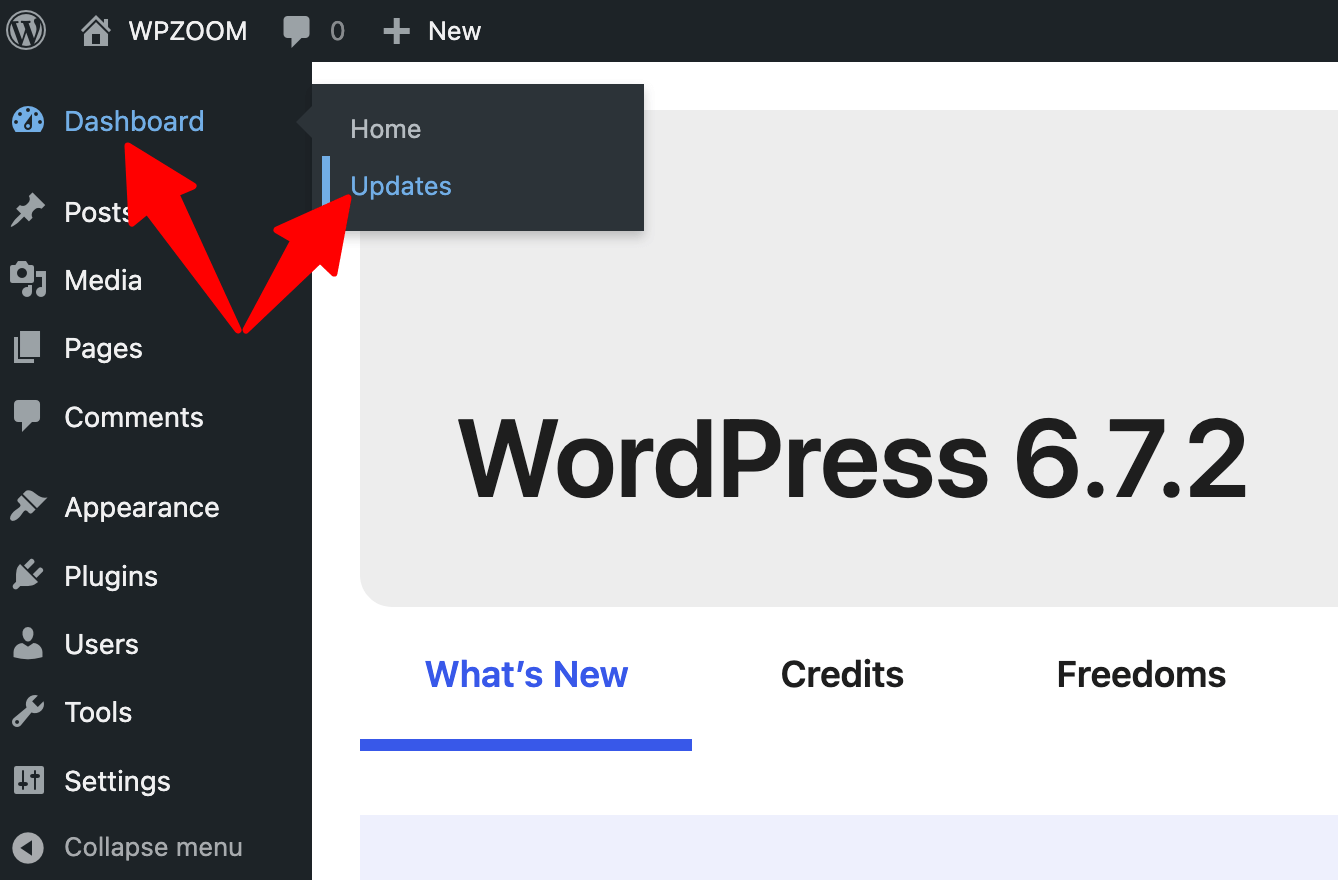

You’ll see your current WordPress installation alongside available upgrades.
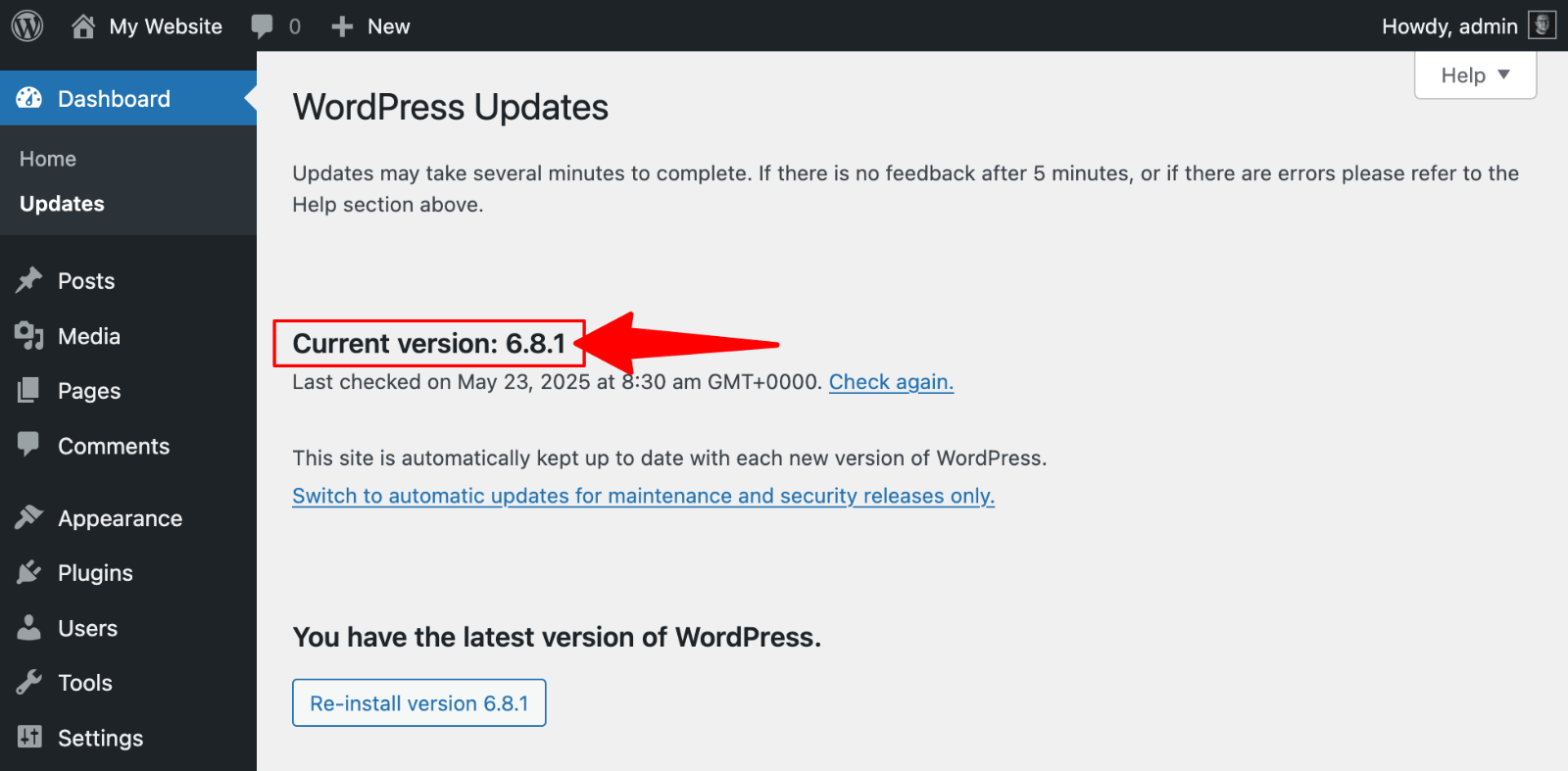

If you’re running the latest version, you’ll see a confirmation message. Outdated versions trigger an update notification with clear instructions for upgrading safely.
Scroll to the bottom-right corner of any admin page. WordPress displays your version number in the footer area.
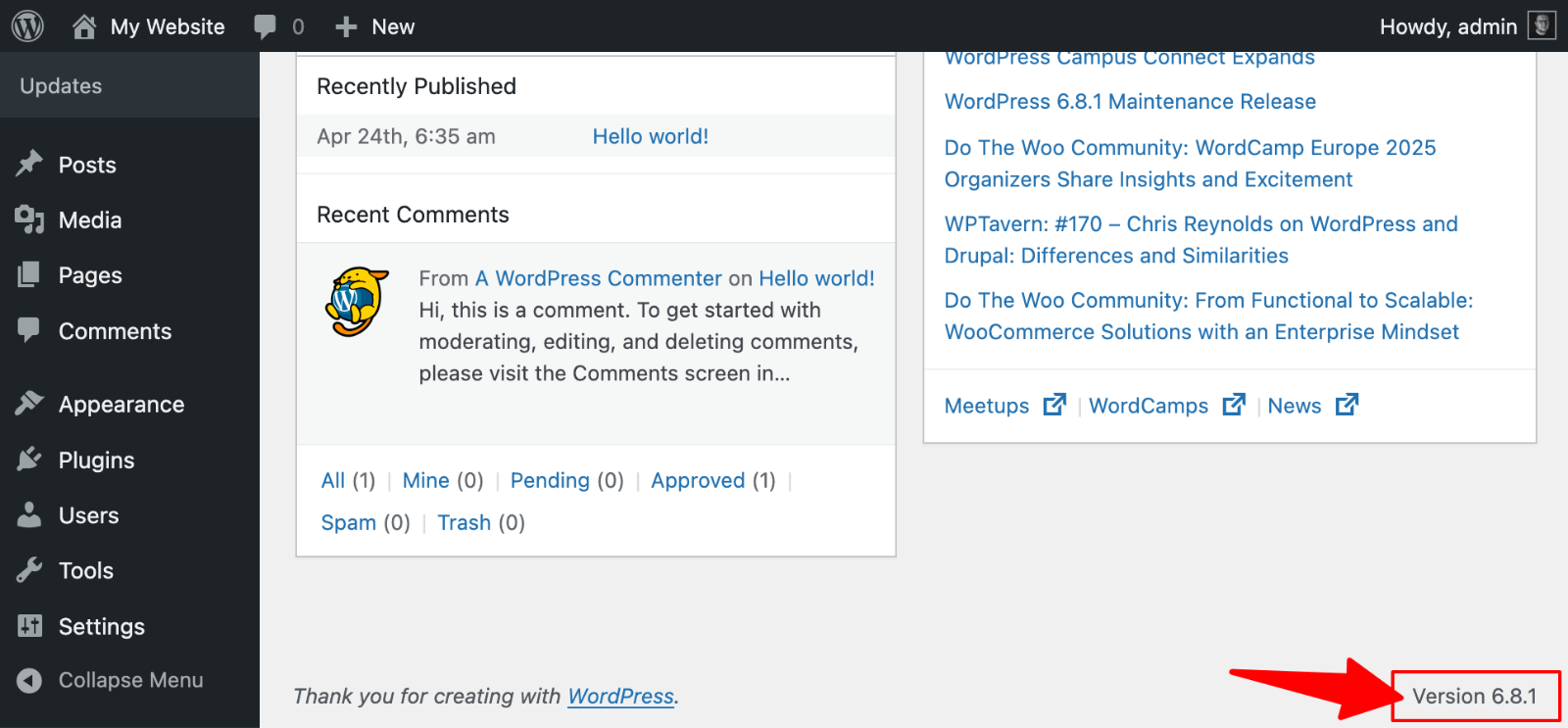

This small text appears on every backend screen, making it easy to spot during regular site management tasks.
Use the “At a Glance” Widget
The “At a Glance” widget provides another quick reference point on your main dashboard page. This widget summarizes your content statistics and displays your active WordPress version at the bottom. Some custom themes or plugins might remove this widget, but most standard installations include it by default.
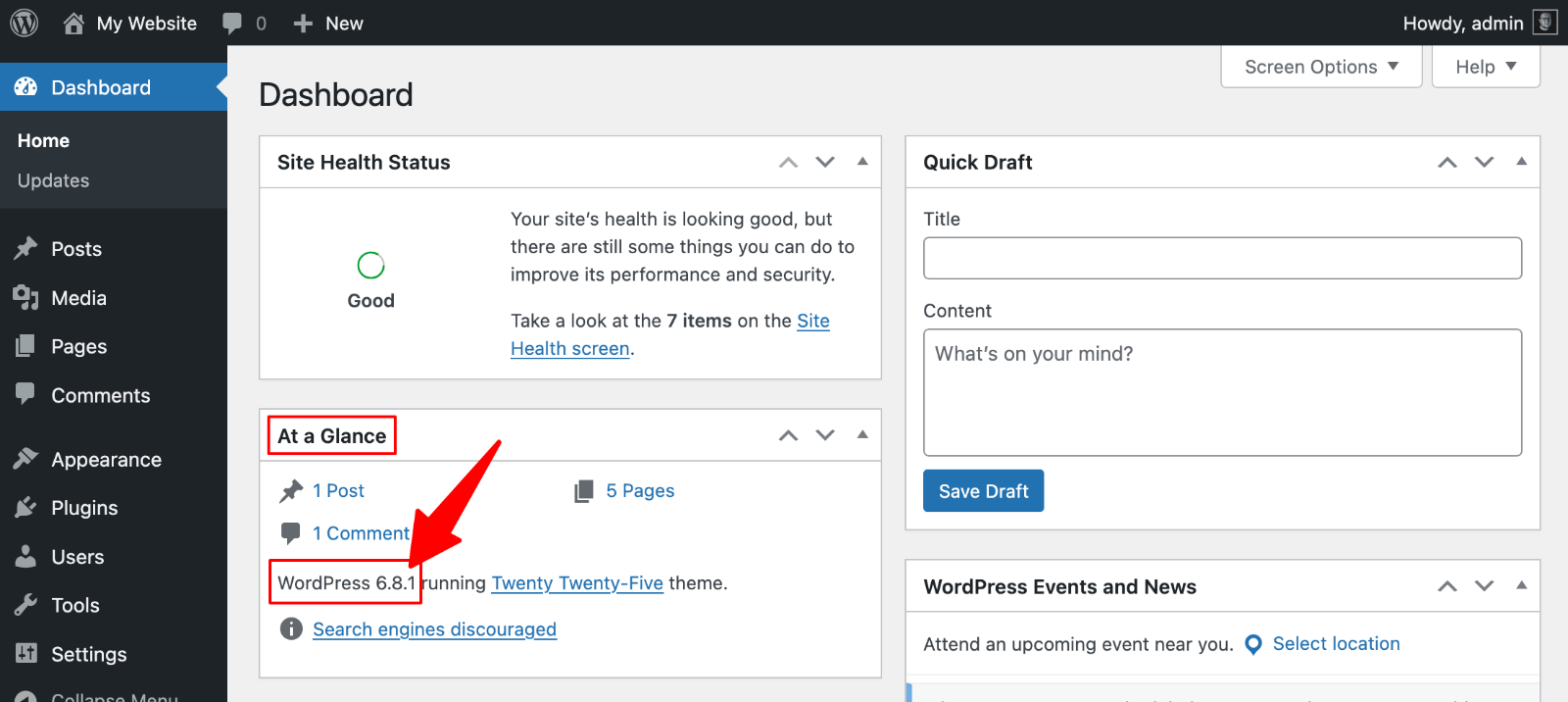

Access the “About WordPress” Page
Click the WordPress logo in the upper-left corner of your admin toolbar. Select “About WordPress” from the dropdown menu.
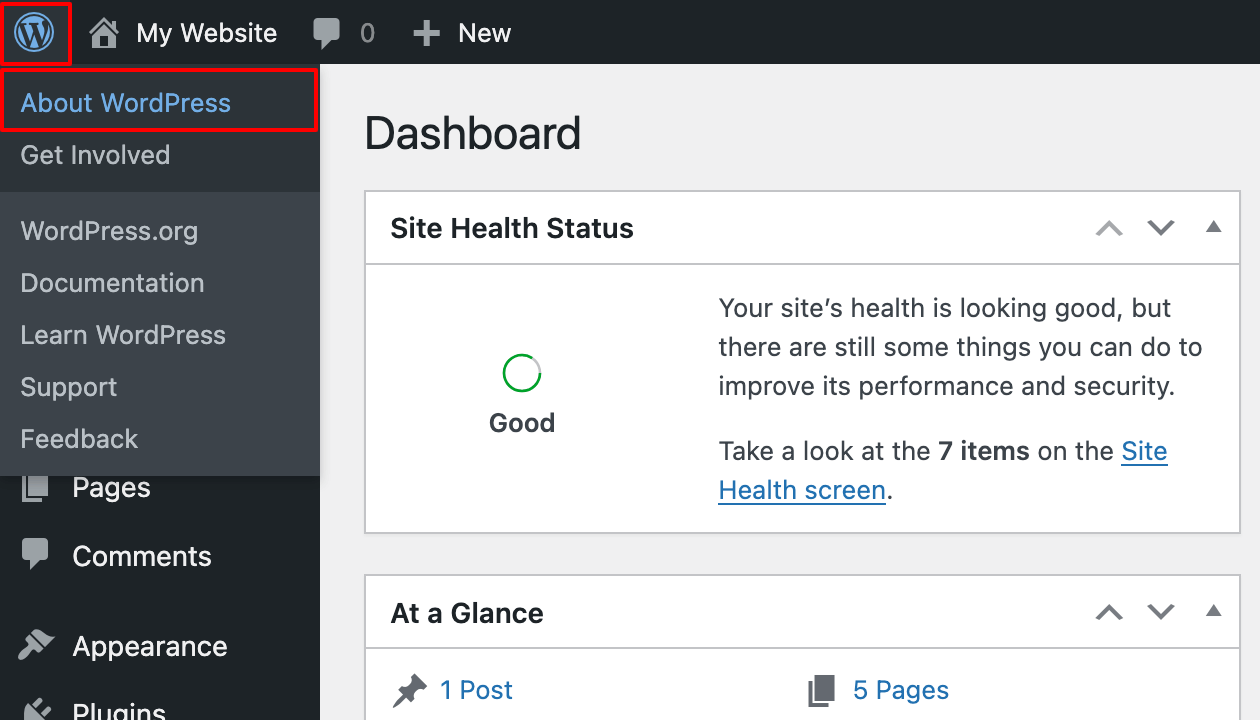

This dedicated page prominently features your current version number along with release notes and feature highlights for your installation.
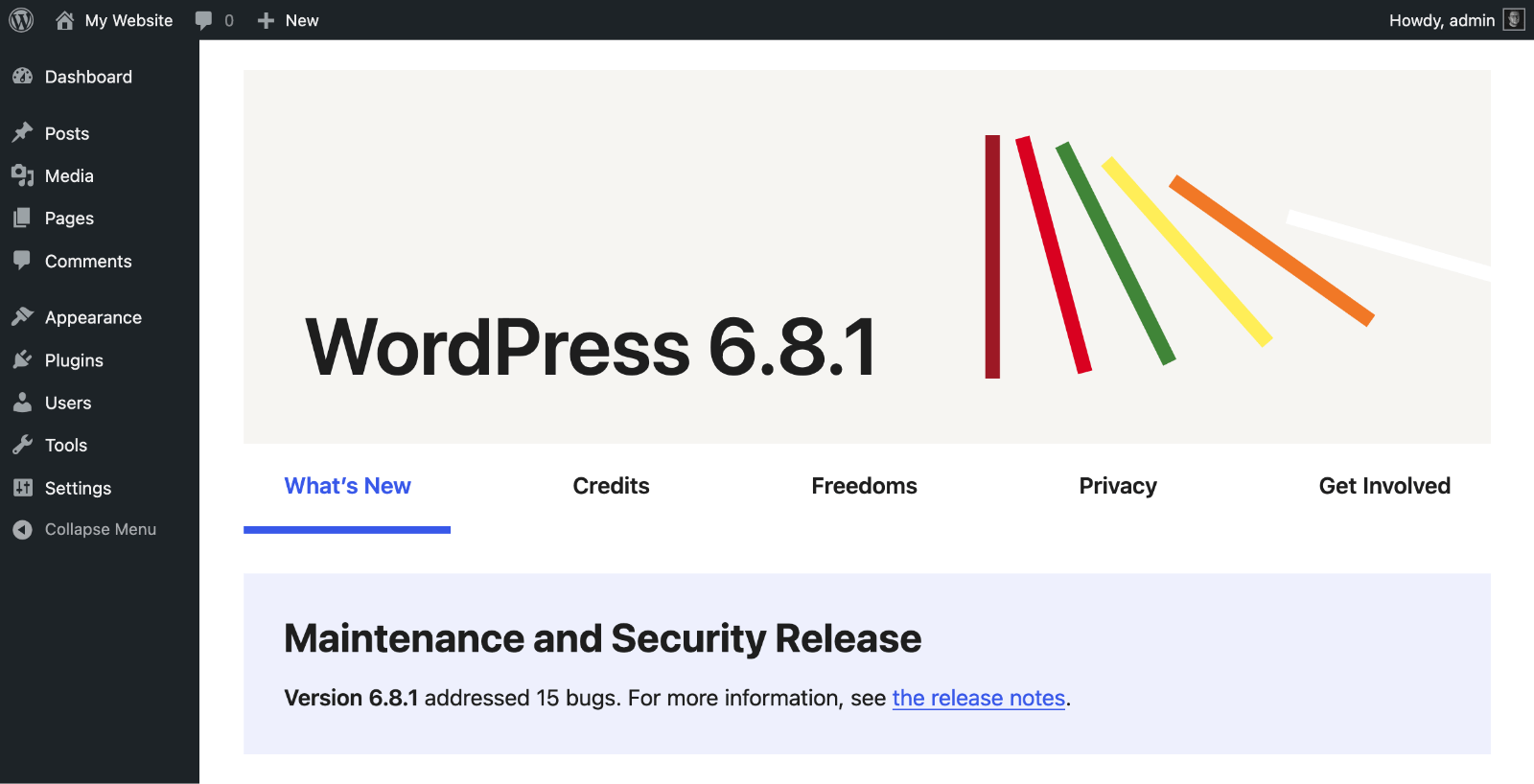

Upgrade Your Website with a Premium WordPress Theme
Find a theme that you love and get a 10% discount at checkout with the FLASH10 code


Can’t access your admin dashboard? These frontend methods let you check any WordPress site’s version without logging in. Keep in mind that security-conscious site owners often hide this information to protect against potential threats.
View the Page Source
Right-click on any page of the website and select “View Page Source” from the context menu.
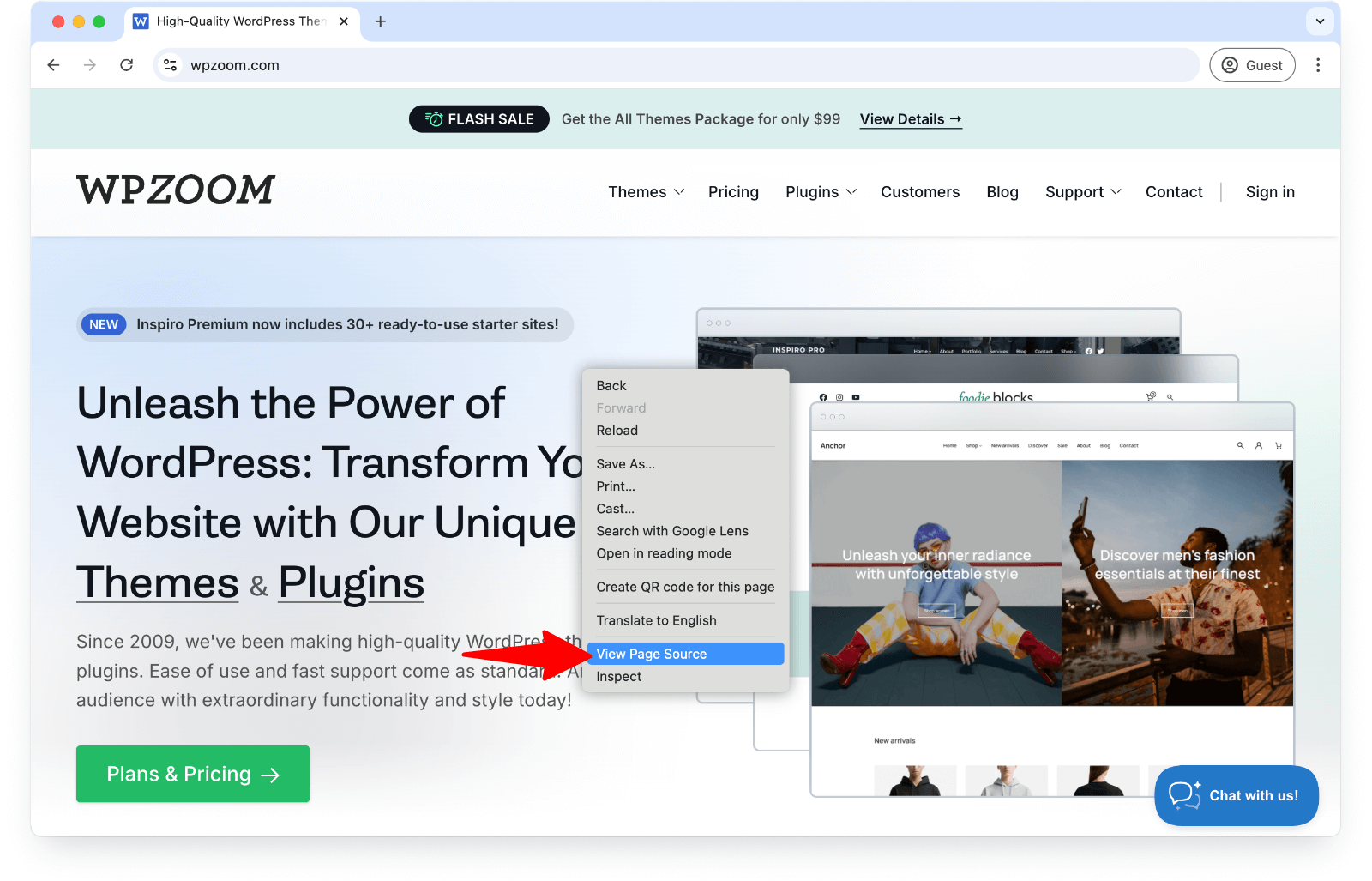

Your browser opens a new tab displaying the site’s HTML code. Press Ctrl+F (Windows) or Cmd+F (Mac) to open the search function.
Search for “generator” in the page source. Look for a line containing the generator tag that displays:
X.X.X” />
The numbers after “WordPress” reveal the current version.
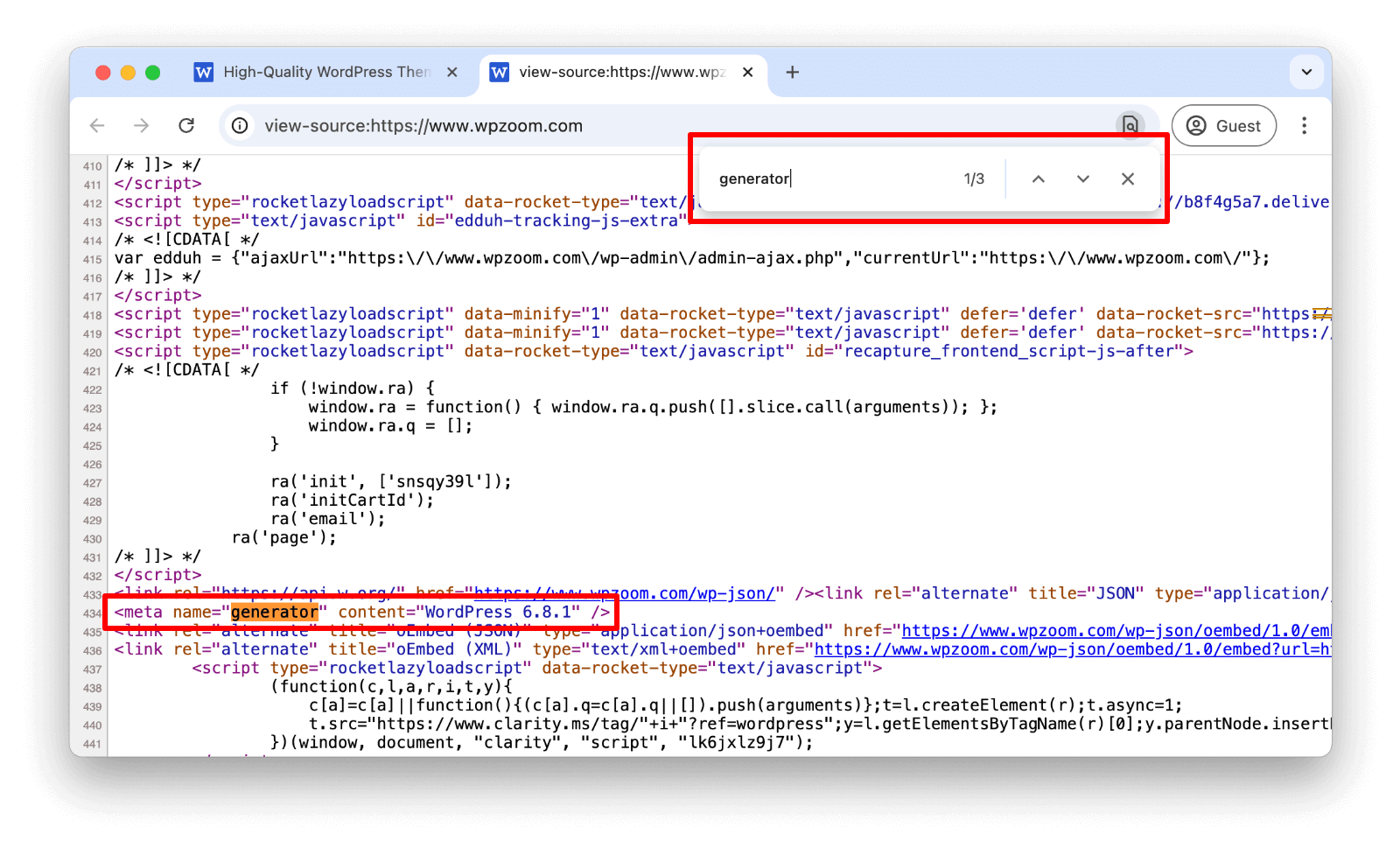

This method works on most WordPress sites unless the owner has removed the generator tag for security purposes. Many WordPress security plugins automatically hide this information from public view.
Add /feed/ to the end of any WordPress URL to navigate to its RSS feed. Most WordPress installations automatically generate RSS feeds at this location.
Once the RSS feed loads, use your browser’s search function to find “generator” again. You’ll see a line similar to:
The version number appears after the “v=” parameter.
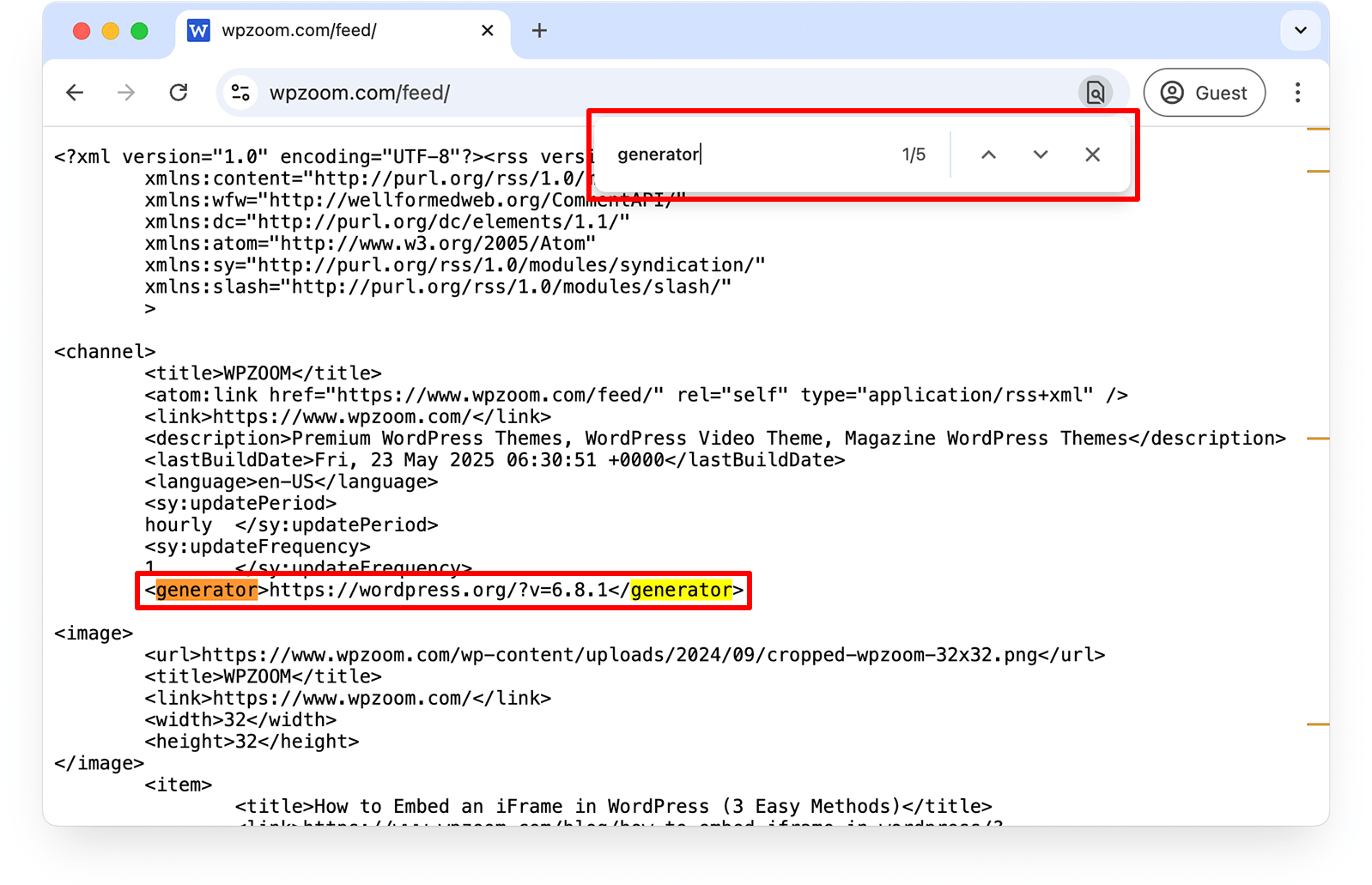

RSS feeds often retain version information even when site owners remove it from the main pages. This makes the RSS method more reliable than checking the page source on security-hardened websites.
How to Check WordPress Version Using the version.php File
The version.php file provides the most reliable method for finding your WordPress version. This approach requires file access through your hosting account but delivers accurate results every time.
Using File Manager in cPanel
Log in to your hosting account and locate the cPanel file manager.
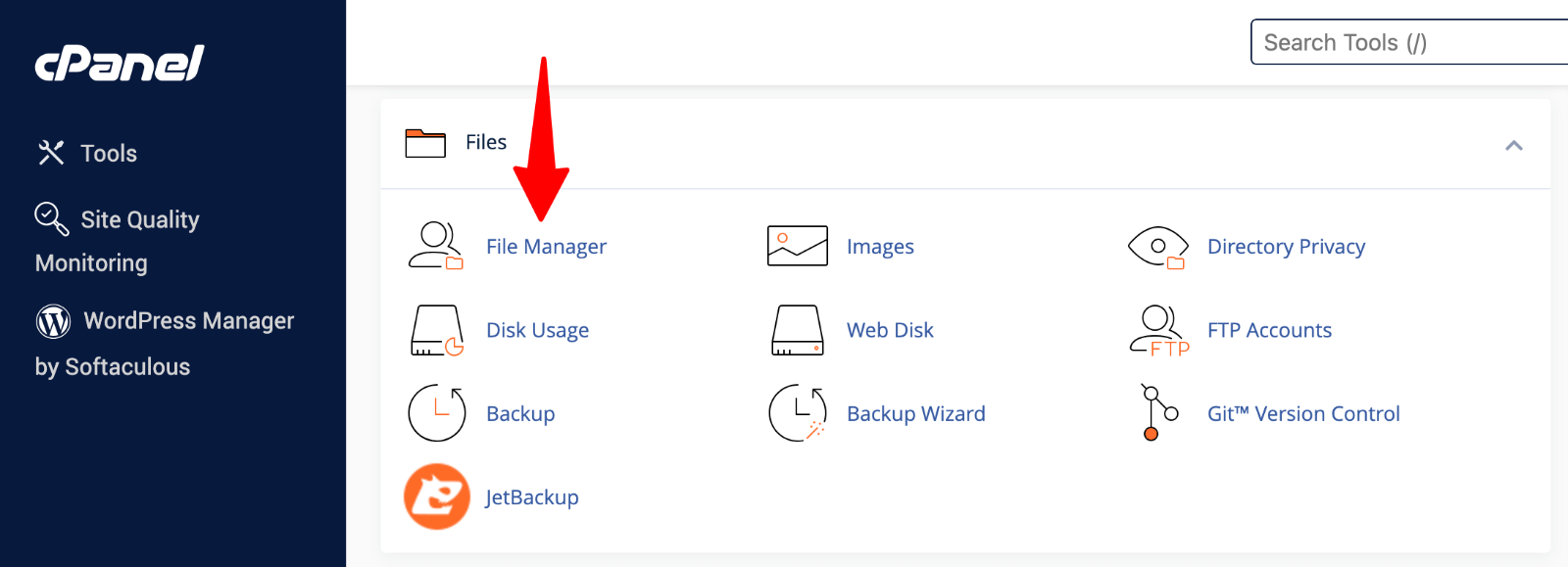 File Manager” class=”wp-image-809072″ srcset=”https://b8f4g5a7.delivery.rocketcdn.me/wp-content/uploads/2025/03/cpanel-file-manager.png 1600w, https://b8f4g5a7.delivery.rocketcdn.me/wp-content/uploads/2025/03/cpanel-file-manager-734×266.png 734w, https://b8f4g5a7.delivery.rocketcdn.me/wp-content/uploads/2025/03/cpanel-file-manager-1024×371.png 1024w, https://b8f4g5a7.delivery.rocketcdn.me/wp-content/uploads/2025/03/cpanel-file-manager-1536×556.png 1536w” sizes=”(max-width: 1600px) 100vw, 1600px”/>
File Manager” class=”wp-image-809072″ srcset=”https://b8f4g5a7.delivery.rocketcdn.me/wp-content/uploads/2025/03/cpanel-file-manager.png 1600w, https://b8f4g5a7.delivery.rocketcdn.me/wp-content/uploads/2025/03/cpanel-file-manager-734×266.png 734w, https://b8f4g5a7.delivery.rocketcdn.me/wp-content/uploads/2025/03/cpanel-file-manager-1024×371.png 1024w, https://b8f4g5a7.delivery.rocketcdn.me/wp-content/uploads/2025/03/cpanel-file-manager-1536×556.png 1536w” sizes=”(max-width: 1600px) 100vw, 1600px”/>Navigate to the public_html directory where your WordPress files live. Look for the wp-includes folder and click to open it.
Scroll through the file list until you find version.php.
Right-click the file and select “Edit” or “View” to open its contents.
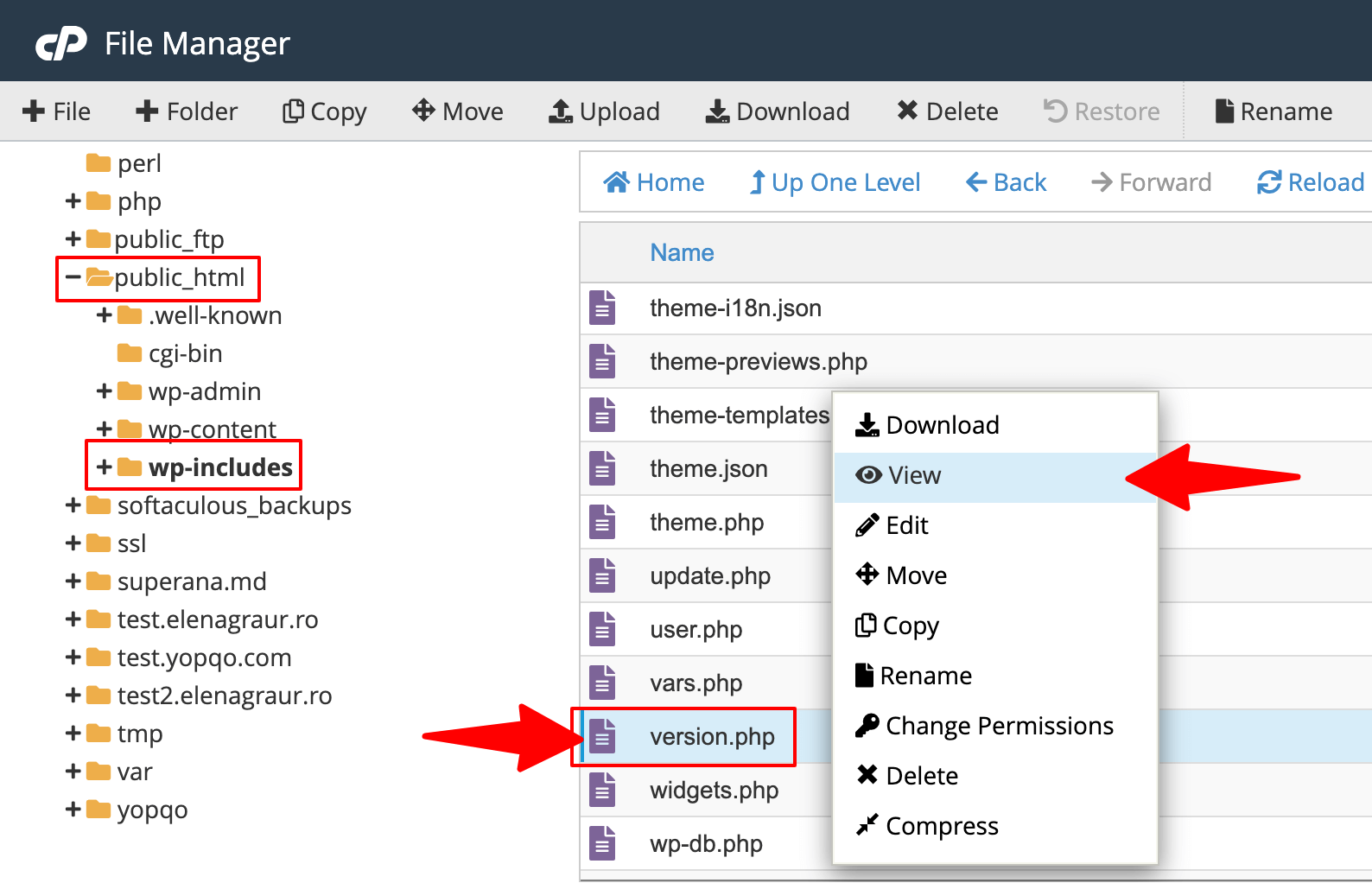

Search for the line containing $wp_version = ‘X.X.X’; – the numbers between the quotes show your exact WordPress version.
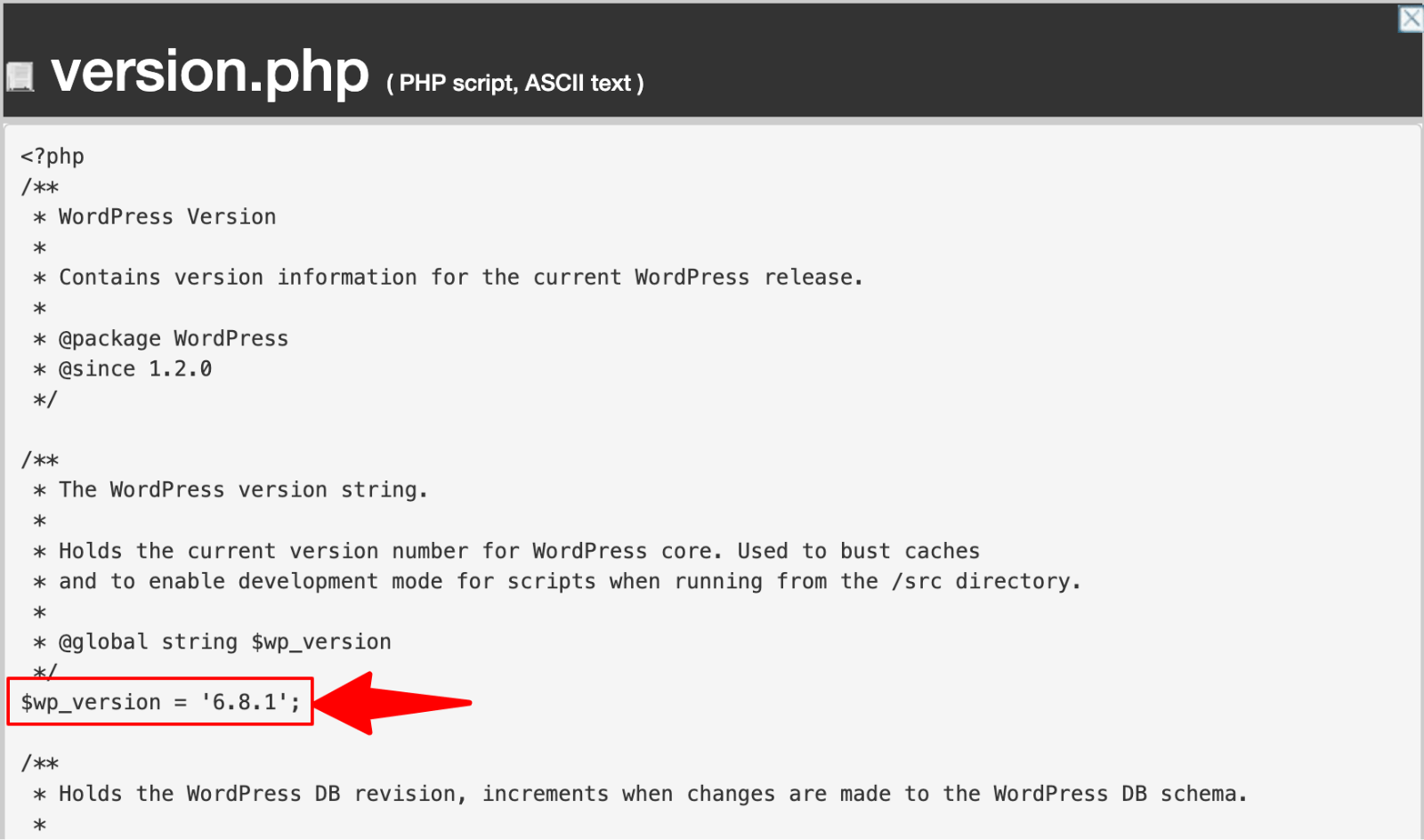

Using an FTP Client Like FileZilla
Download and install FileZilla or another FTP client of your choice. Then, gather your FTP credentials from your hosting provider’s control panel. You’ll need the hostname, username, password, and port number.
Connect to your server using these credentials. Navigate to the wp-includes directory within your WordPress installation folder. Download the version.php file to your computer or view it directly through the FTP client.
Open the file with any text editor and locate the $wp_version variable.
This method works reliably even when other version-checking techniques fail due to security restrictions or site errors.
Checking WordPress Version with WP-CLI
WP-CLI offers a powerful command-line interface for managing WordPress sites. This method appeals to developers and experienced users who prefer terminal-based workflows over graphical interfaces.
What is WP-CLI?
WP-CLI stands for WordPress Command Line Interface – a tool that lets you perform WordPress tasks through text commands rather than clicking through admin screens. Many hosting providers include WP-CLI on their servers by default, making it readily available for site management.
This command-line tool excels at bulk operations, automated tasks, and troubleshooting scenarios where the WordPress dashboard might be inaccessible. Web developers often integrate WP-CLI into their deployment workflows and maintenance scripts.
Using WP-CLI Commands
Connect to your server through SSH (Secure Shell) protocol. Your hosting provider can supply the necessary connection details and instructions for accessing your server remotely.
Navigate to your WordPress installation directory using the cd command.
Once you’re in the correct folder, type wp core version and press Enter. The command immediately displays your current WordPress version number.
You can also use wp core check-update to see if newer versions are available. This command compares your installation against the latest WordPress releases and shows update recommendations.
Always create backups before running WP-CLI commands that modify your site.
Take Your WordPress Site to the Next Level
You’ve learned how to check your WordPress version – now it’s time to make sure your site looks as good as it performs. A secure, updated WordPress installation deserves a professional design that matches its reliability.
WPZOOM’s premium themes give your business the polished appearance it needs to stand out online. Our carefully crafted designs combine stunning visuals with optimized performance, ensuring your site loads fast and converts visitors into customers.
Subscribe to the WPZOOM newsletter.
Join 150,000 people. Get our latest news & releases delivered to your inbox.

